SWEDISH
SOUTH ASIAN STUDIES NETWORK
Newsletter 92:
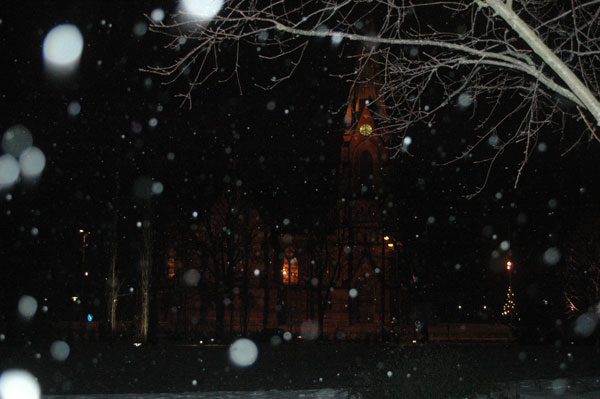 14 January 2009
14 January 2009
| Educational News |
| Politics and Business |
| South Asia related Culture |
| New and updated information |
• Board to discuss draft plan for long term planning of SASNET
 A strategy group consisting of members from SASNET’s board plus its root node staff is now actively working. The group has prepared a draft plan for the long term
planning of the Swedish South Asian Studies
Network, well in advance of the end of the current funding period which means before 31 December 2009. The draft plan will be discussed by SASNET’s board at its coming meeting in Lund on Tuesday 27 January. The strategy group consists of: Associate Professor Gunnel Cederlöf, Dept. of History, Uppsala University, and chairperson of SASNET’s board; Associate Professor Cecilia Stålsby Lundborg, Division of International Health (IHCAR), Karolinska Institutet Medical University, Stockholm, and also vice chairperson of SASNET’s board; Dr. Camilla Orjuela, Division of Peace and Development Studies, School of Global Studies, Göteborg University; and Associate Professor Prosun Bhattacharya, Dept. of Land and Water Resources Engineering, Royal Institute of Technology (KTH), Stockholm. SASNET’s Director, Dr. Anna Lindberg is the coordinator of the group.
A strategy group consisting of members from SASNET’s board plus its root node staff is now actively working. The group has prepared a draft plan for the long term
planning of the Swedish South Asian Studies
Network, well in advance of the end of the current funding period which means before 31 December 2009. The draft plan will be discussed by SASNET’s board at its coming meeting in Lund on Tuesday 27 January. The strategy group consists of: Associate Professor Gunnel Cederlöf, Dept. of History, Uppsala University, and chairperson of SASNET’s board; Associate Professor Cecilia Stålsby Lundborg, Division of International Health (IHCAR), Karolinska Institutet Medical University, Stockholm, and also vice chairperson of SASNET’s board; Dr. Camilla Orjuela, Division of Peace and Development Studies, School of Global Studies, Göteborg University; and Associate Professor Prosun Bhattacharya, Dept. of Land and Water Resources Engineering, Royal Institute of Technology (KTH), Stockholm. SASNET’s Director, Dr. Anna Lindberg is the coordinator of the group.
• Changes in SASNET’s web design
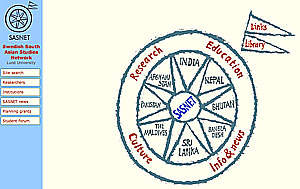 During january 2009, SASNET’s web site is undergoing a minor face-lift. The front page has been made more clean, news items have moved to a special page, and the search engine has been easier to find. Direct links have also been introduced in a menu bar to the left for quick access to the Student Forum, the register of individual Swedish researchers, the database of South Asia related Swedish university departments, and the information page about SASNET planning grants.
During january 2009, SASNET’s web site is undergoing a minor face-lift. The front page has been made more clean, news items have moved to a special page, and the search engine has been easier to find. Direct links have also been introduced in a menu bar to the left for quick access to the Student Forum, the register of individual Swedish researchers, the database of South Asia related Swedish university departments, and the information page about SASNET planning grants.
The work is carried out by Mr. Paul Hedberg from Lund University’s IT section, and he will continue the work by upgrading the now dormant individual researchers’ register, making it easier to update information. He will also do some changes on the design of other pages in SASNET’s web site (consisting of more than 1,300 pages).
• Omvärlden published article on SASNET
In the Swedish magazine Omvärlden, published by the Swedish International Development Cooperation Agency Sida, an impressive article on SASNET appeared in its December 2008 issue (No. 7/2008). The article is written by senior journalist Jöran Hök and is based on an interview with SASNET’s deputy director Lars Eklund at the root node office in Lund. It is titled ”Unikt svenskt nätverk blir förebild för fler forskare” (Unique Swedish network becomes a model for more researchers). Read the article (as a pdf-file, in Swedish only).
• SASNET co-organises workshop on Women and Migration in Sri Lanka
SASNET co-organises an international workshop on ”Women and migration in South Asia.
Health and Social Consequences” will be held in Colombo, Sri Lanka 9–11 February 2009. The workshop is organised by SASNET in collaboration with the University of Sri Jayewardenepura (SJP) in Colombo, and the Division of International Maternal and Child Health (IMCH) at Uppsala University. Researchers in the field have been invited from all over the South Asia region and from Swedish institutions. SASNET’s director Anna Lindberg and deputy director Lars Eklund will both participate in the workshop.
The focus will be on the consequences of migration for women, their children and families in South Asia. The themes to be covered are the effects of such migration with respect to: – social consequences; – gender perspective; – economy at family level; – health including sexually transmitted diseases; and – child development and psychology.
The workshop is also the first effort to realise the concept of SASNET sub-networks, put forward at the informal meeting by SASNET’s South Asian Reference Group held in Delhi in November 2007 (more information), later decided upon by SASNET’s board. One of the reference group members, Dr. Kumudu Wijewardena from the University of Sri Jayewardenepura (SJP) in Colombo will chair the Colombo workshop. A separate meeting will be held with SASNET’s South Asian Reference Group on Tuesday 10 February. See the full programme for the workshop.
• SASNET Summer conference for young Nordic scholars
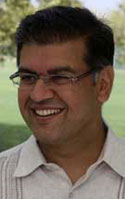 SASNET organises a Nordic conference on
South Asian Studies for young scholars in Falsterbo 17–19 August 2009. The aim of the conference is to gather master students, doctoral students, postdoctoral researchers and other junior scholars in the Nordic countries (including Denmark, Finland, Iceland, Norway and Sweden) who focus on South Asia in their research studies. The conference will provide an opportunity for young scholars to present their future and ongoing research projects, establish contacts with colleagues in the Nordic countries, and discuss the challenges and opportunities of career planning and conducting research in South Asian Studies.
SASNET organises a Nordic conference on
South Asian Studies for young scholars in Falsterbo 17–19 August 2009. The aim of the conference is to gather master students, doctoral students, postdoctoral researchers and other junior scholars in the Nordic countries (including Denmark, Finland, Iceland, Norway and Sweden) who focus on South Asia in their research studies. The conference will provide an opportunity for young scholars to present their future and ongoing research projects, establish contacts with colleagues in the Nordic countries, and discuss the challenges and opportunities of career planning and conducting research in South Asian Studies.
Four keynote speakers have been invited: Prof. Vinayak Chaturvedi (photo to the right), University of California Irvine; Dr. Mirja Juntunen, Nordic Center in India, Uppsala University; Editor Teddy Primack, Academic Documents Associates, New York; and Prof. Pamela Price, Oslo University. The thematic sessiosn will be led by Prof. Knut A. Jacobsen, University of Bergen; Dr. Catarina Kinnvall, Lund University; Dr. Per Hilding, Stockholm University; and Prof. Devdatt Dubhashi, Chalmers University of Technology, Göteborg. Venue: Falsterbo Kursgård, Ljungvägen 1, Höllviken (south of Malmö). More information in the conference web site.
• Report from SASNET visit to Umeå University
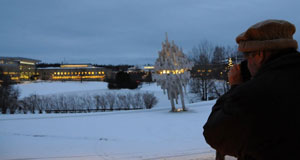 In December 2008, SASNET’s deputy director Lars Eklund made a visit to Umeå University and the Swedish University of Agricultural Sciences in Umeå. Lars met with a large number of researchers, university teachers and administrators interested in South Asia related collaboration projects both in research and education, and the possibilities that SASNET might offer in facilitating such.
He visited departments where South Asia related research and/or education is going on, including the Unit for
Epidemiology and
Public Health Sciences,
the Dept. of Social Work, and Umeå Plant Science Centre (UPSC), run jointly by Umeå University’s Dept. of Forest Genetics and Plant Physiology, and the Swedish University
of Agricultural Sciences (SLU) in Umeå. Read Lars Eklund’s report from Umeå.
In December 2008, SASNET’s deputy director Lars Eklund made a visit to Umeå University and the Swedish University of Agricultural Sciences in Umeå. Lars met with a large number of researchers, university teachers and administrators interested in South Asia related collaboration projects both in research and education, and the possibilities that SASNET might offer in facilitating such.
He visited departments where South Asia related research and/or education is going on, including the Unit for
Epidemiology and
Public Health Sciences,
the Dept. of Social Work, and Umeå Plant Science Centre (UPSC), run jointly by Umeå University’s Dept. of Forest Genetics and Plant Physiology, and the Swedish University
of Agricultural Sciences (SLU) in Umeå. Read Lars Eklund’s report from Umeå.
• Sidsel Hansson participated in India Platform UGent meeeting in Ghent
SASNET was represented by its then acting director Dr. Sidsel Hansson at the so-called India Platform UGent meeeting held at Ghent University, Belgium on Saturday 4 October 2008. The meeting was organised by the Research Centre Vergelijkende Cultuurwetenschap (“Comparative Science of Cultures”) at Ghent University and its purpose was to explore potential forms of collaboration among a
network of European universities. The ambition was to form a so-called India Platform UGent with a proposed role to coordinate and facilitate
setting up European collaborative research and educational projects related to India in the
humanities and social sciences. Not much came out of the Ghent meeting, but the discussions will continue at a coming meting at the University of Tartu in Estonia to be held during 2009. See the call for the Ghent meeting.
• Daya Kishan Thussu lectures at Focus Asia conference in Lund
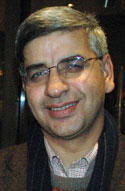 Dr. Daya Kishan Thussu from the University of Westminster, UK, has been invited by SASNET to participate in a Focus Asia conference on ”Media Cultures and Politics in Asia and Beyond” that will be held at Lund University 26–27 February 2009. Focus Asia is a yearly event organised by the Centre for East and South-East Asian Studies (ACE) at Lund University, and this 10th Focus Asia event brings together leading media scholars who will discuss media in Asia and beyond. Several of the lectures at the Focus Asia sonference will address the relationship between media, democracy and the public sphere in different national and regional contexts. Besides being Professor of International Communication at the Dept. of Journalism and Mass Communication,
School of Media, Arts and Design,
University of Westminster, Dr. Thussu is also the
Managing Editor of the SAGE journal ”Global Media and Communication”. Current research interests include: globalization and its impact on media cultures, particularly in the South; political economy of international communication; global news flow; internationalizing media studies; media and mediated culture in India and among South Asian diaspora. More information on Focus Asia February 2009.
Dr. Daya Kishan Thussu from the University of Westminster, UK, has been invited by SASNET to participate in a Focus Asia conference on ”Media Cultures and Politics in Asia and Beyond” that will be held at Lund University 26–27 February 2009. Focus Asia is a yearly event organised by the Centre for East and South-East Asian Studies (ACE) at Lund University, and this 10th Focus Asia event brings together leading media scholars who will discuss media in Asia and beyond. Several of the lectures at the Focus Asia sonference will address the relationship between media, democracy and the public sphere in different national and regional contexts. Besides being Professor of International Communication at the Dept. of Journalism and Mass Communication,
School of Media, Arts and Design,
University of Westminster, Dr. Thussu is also the
Managing Editor of the SAGE journal ”Global Media and Communication”. Current research interests include: globalization and its impact on media cultures, particularly in the South; political economy of international communication; global news flow; internationalizing media studies; media and mediated culture in India and among South Asian diaspora. More information on Focus Asia February 2009.
• Applications invited for the 2009 round of SASNET grants
Closing date for applications is
15 June 2009. There are three kinds of grants offered by SASNET: 1. Networking grants for planning new research and/or
education programmes or projects in collaboration between Swedish and South Asian partners; 2. Guest lecture programme grants (for inviting a guest lecturer
from South Asia to visit Swedish
universities), and 3. Grants for organising South Asia related interdisciplinary research
workshops either in Sweden or in South Asia. Please note that the main applicant must always be
a researcher or teacher based at a Swedish university. All previously distributed SASNET grants are presented on our web page (go for the list). Decisions will be taken in late August 2009. More information.
• Christer Norström represented SASNET at Sida Science Day
Dr. Christer Norström, Dept. of Social Anthropology, Stockholm University and former SASNET board member, represented SASNET at the first so-called Sida Science Day held in Stockholm on Wednesday 17 December 2008. The event was organised by the Swedish International Development Cooperation Agency (Sida), and is supposed to become an annual event to monitor the
implementation of Sida’s strategy for the advancement of research in
developing countries during the period 2009–13. The Sida Science Day should provide a context
analysis in the area of research policy in low income countries and present
major research findings from research cooperation programmes.
The Sida Science Day 2008 was divided into two parts, the first one only open to Sida staff and other stakeholders
within Sida, and focusing entirely on Africa. The second part, however, was open to a broader audience, and had a wider scope.
Representatives for the
Swedish Ministry of Education, directors of the Swedish Research Councils,
Vice Chancellors and Professors of Swedish universities and university colleges were invited to discuss issues such as ”The Swedish Research Bill
2008”; ”The Swedish policy for
research cooperation with
developing countries”; and ”The Swedish experience of research cooperation”. Full information about the Sida Science Day 2008.
• More information about SASNET and its
activities
See SASNET’s page, http://www.sasnet.lu.se/sasnet.html
• New stipulations for Sida’s U-forsk grants for period 2010–2012
![]() Grants
to support Swedish development research are provided by the Swedish
International Development Cooperation Agency, Sida,
through its Developing
Country Research Council (u-landsforskningsrådet).
Applications for the period 2010–2012 will be open from mid- February till 2 April 2009 (preliminary closing date for Uforsk applications). More information.
Grants
to support Swedish development research are provided by the Swedish
International Development Cooperation Agency, Sida,
through its Developing
Country Research Council (u-landsforskningsrådet).
Applications for the period 2010–2012 will be open from mid- February till 2 April 2009 (preliminary closing date for Uforsk applications). More information.
Among the new stipulations set up by Sida are requirements that the proposed research project should have a clear relevance for Sweden’s policy for global development (PGU); and have a land focus in accordance with the Swedish government’s priorities – which in the South Asia case means primarily Bangladesh and Afghanistan and in a selective mode also India. Further, Sida wants to encourage increased collaboration between researchers at different Swedish universities, opening up the possibility for groups of researchers to apply for grants up to SEK 3 M over a three-years period. The maximum amount for planning grants is increased to SEK 100 000. Finally, the term ”research networks” that groups of researchers can apply for will be changed into ”networks on development issues”, where the focus is more oriented towards meetings and an exchange of knowledge between researchers and practitioners. Still, the main applicant should be connected to a Swedish university. More information on the planned changes in the Uforsk programme (as a pdf-file, in Swedish only).
• Schedule for 2009 applications to Swedish Research Council
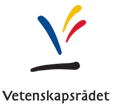 The Swedish
Research Council (Vetenskapsrådet) provides support for basic research
of the highest scientific quality in all fields of science.
Several South Asia related projects have been given grants in recent
years. Applications for grants for 2010 and subsequent years should have been
given no later than: 2 April 2009 for projects within Humanities and
Social sciences; 8 April 2009 for projects within Medicine; 15 April 2009 for projects within Natural sciences and Technology; and 22 April
2009 for projects within Educational science, and for Research infrastructures.
Decisions will be taken in November 2009. Full
information on grants currently announced, requirements, instructions etc.
The Swedish
Research Council (Vetenskapsrådet) provides support for basic research
of the highest scientific quality in all fields of science.
Several South Asia related projects have been given grants in recent
years. Applications for grants for 2010 and subsequent years should have been
given no later than: 2 April 2009 for projects within Humanities and
Social sciences; 8 April 2009 for projects within Medicine; 15 April 2009 for projects within Natural sciences and Technology; and 22 April
2009 for projects within Educational science, and for Research infrastructures.
Decisions will be taken in November 2009. Full
information on grants currently announced, requirements, instructions etc.
• Applications window for Formas grants open in March
Every year, the Swedish Research Council for Environment, Agricultural Sciences
and Spatial Planning (Formas) announces grants for research and development projects within the fields of environment, agricultural
sciences, building sciences and urban development. The applications for the coming round, 2010–2012, will open in the beginning of March 2009. More information.
Formas also announces a number of regular grants that may be applied for at any time of the year, so-called Urgent grants, Travel grants, and Grants for conferences, symposia and workshops. More information.
• Research grant to study second generation Sikhs in Sweden
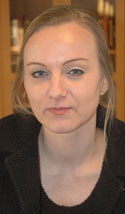 In December 2008, Dr. Kristina Myrvold, Division of Indic Religions, Department of History and Anthropology
of Religions, Lund University, was given SEK 150 000 as a grant from Erik Philip Sörensens foundation for starting up a project at Lund University titled ”Becoming Swedish Sikhs: Religious Socialization of Second Generation Sikh Youth in Sweden”. The purpose behind the project is to investigate how the second generation Sikhs gravitate towards religious identification and shape understanding about religion and identity in attempts to carve out a place for themselves in the Swedish society. The project will be conducted in close cooperation with other Nordic scholars and members of the academic network Sikhs-in-Europe.
In December 2008, Dr. Kristina Myrvold, Division of Indic Religions, Department of History and Anthropology
of Religions, Lund University, was given SEK 150 000 as a grant from Erik Philip Sörensens foundation for starting up a project at Lund University titled ”Becoming Swedish Sikhs: Religious Socialization of Second Generation Sikh Youth in Sweden”. The purpose behind the project is to investigate how the second generation Sikhs gravitate towards religious identification and shape understanding about religion and identity in attempts to carve out a place for themselves in the Swedish society. The project will be conducted in close cooperation with other Nordic scholars and members of the academic network Sikhs-in-Europe.
• Private company handles Swedish visa applications for India
 The Embassy of India in Stockholm has outsourced most of its handling of tourist, student, business and other visas to India. From December, 1, 2008, the Embassy of India in Stockholm has contracted the private company TT Services AB to handle visa applications at a new Indian Visa Application Center (IVAC) located at Kungsgatan 36 (2nd floor) in Stockholm (more information about TT Services AB). If visa applications are complete and payment is made in person at the visa counter of IVAC, visas are supposed to be granted within two working days for all eligible applicants. However, for people not going to Stockholm in person and who send their applications by post, processing time for applications is much longer. Only after the payment etc are confirmed the processing will start, and it may take up to 25 working days to complete the process. It should also be noted that IVAC charges an extra fee of SEK 212 in addition to the applicable visa fees (SEK 440 for a tourist visa, SEK 820 for a student visa and SEK 1 320 for a business visa). Swedish journalists still have to apply for their visas directly from the Embassy of India, and the same procedure applies to any person of Pakistani or Aghani origin. Full information about visa rules by the Embassy of India in Sweden.
The Embassy of India in Stockholm has outsourced most of its handling of tourist, student, business and other visas to India. From December, 1, 2008, the Embassy of India in Stockholm has contracted the private company TT Services AB to handle visa applications at a new Indian Visa Application Center (IVAC) located at Kungsgatan 36 (2nd floor) in Stockholm (more information about TT Services AB). If visa applications are complete and payment is made in person at the visa counter of IVAC, visas are supposed to be granted within two working days for all eligible applicants. However, for people not going to Stockholm in person and who send their applications by post, processing time for applications is much longer. Only after the payment etc are confirmed the processing will start, and it may take up to 25 working days to complete the process. It should also be noted that IVAC charges an extra fee of SEK 212 in addition to the applicable visa fees (SEK 440 for a tourist visa, SEK 820 for a student visa and SEK 1 320 for a business visa). Swedish journalists still have to apply for their visas directly from the Embassy of India, and the same procedure applies to any person of Pakistani or Aghani origin. Full information about visa rules by the Embassy of India in Sweden.
• Doctoral dissertation about Swedish and Indian knowing of mathematics
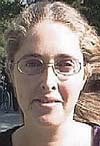 PhD candidate Ingrid Dash, Dept. of Education, Lund University will defend her doctoral dissertation on Friday 30 January 2009, 10.00. The thesis is titled ”Flexibility in knowing school mathematics in the contexts of a Swedish and an Indian school class”. The main objective has been to obtain insights into flexible modes of knowing in school mathematics in two school class contexts, and how these relate to modes of being a learner in these contexts, with specific focus on learners’ flexible ways of discerning parts and delimiting wholes, and how they understand part- and whole-relationships while doing mathematics. Empirical material was collected from one school class in Southern Sweden and another in the Indian state of Orissa. More information.
PhD candidate Ingrid Dash, Dept. of Education, Lund University will defend her doctoral dissertation on Friday 30 January 2009, 10.00. The thesis is titled ”Flexibility in knowing school mathematics in the contexts of a Swedish and an Indian school class”. The main objective has been to obtain insights into flexible modes of knowing in school mathematics in two school class contexts, and how these relate to modes of being a learner in these contexts, with specific focus on learners’ flexible ways of discerning parts and delimiting wholes, and how they understand part- and whole-relationships while doing mathematics. Empirical material was collected from one school class in Southern Sweden and another in the Indian state of Orissa. More information.
• Licentiate thesis on War-Affected Children in Sri Lanka
PhD candidate Sachitra Kumari, Division of Peace and Development Research (PADRIGU), School
of Global Studies, Göteborg University, defended her Licentiate thesis titled ”A Study of War-Affected Children in Sri Lanka” on Thursday 18 December 2008. The thesis aims to build up an analytical model for studying rehabilitation programmes for children in Sri Lanka, with a view to future research. Ms. Kumari is also lecturer at the Dept. of Sociology, University of Peradeniya in Sri Lanka. More information.
• More information about South Asia related
research at Swedish and Nordic universities
See SASNET’s page, http://www.sasnet.lu.se/research.html
Go for the |
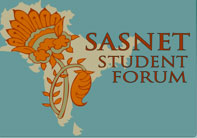 |
• Time to apply for for Summer Program in Punjab Studies
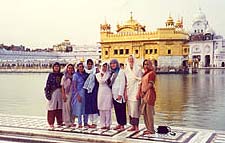 The
13th Summer Program in Punjab Studies will be held in
Chandigarh, India, 5 July – 15 August 2009. The program,
open to both graduate and undergraduate students, provides
six weeks of instruction in Punjab Studies. The work includes
the learning of Punjabi (50 hours), and history and culture
of the region (90 hours). The goal of the program is to impart
substantial academic information about the history and culture
of the region and provide an environment for discussion and
exploration. Deadline for applications is 27 February 2009. More
information.
The
13th Summer Program in Punjab Studies will be held in
Chandigarh, India, 5 July – 15 August 2009. The program,
open to both graduate and undergraduate students, provides
six weeks of instruction in Punjab Studies. The work includes
the learning of Punjabi (50 hours), and history and culture
of the region (90 hours). The goal of the program is to impart
substantial academic information about the history and culture
of the region and provide an environment for discussion and
exploration. Deadline for applications is 27 February 2009. More
information.
• More information about South Asia related
education at Swedish and Nordic universities
See SASNET’s page, http://www.sasnet.lu.se/education.html
• Joint Roskilde/Witwatersrand conference on Indian Ocean as a visionary area
An international conference on ”Print Cultures, Nationalisms and Publics of the Indian Ocean” will be held in Johannesburg, South Africa 15–17 January 2009. It will be convened by Isabel Hofmeyr from the University of the Witwatersrand, and Preben Kaarsholm from Roskilde University, Denmark on behalf of the Research Network on ”The Indian Ocean as Visionary Area:
Post-Multiculturalist Approaches to the Study of Culture and Globalisation”. Deadline for submission of papers accepted for presentation was 14
December 2008. Venue: The Wits Club, University of the Witwatersrand, Johannesburg.
• Delhi conference on World’s Religions After September 11
 A conference on ”World’s Religions After September 11 – An Asian Perspective” is organized in New Delhi 17–20 January 2009. It is organised by the recently established Centre for the Comparative Study of Religions and Civilizations at the Jamia Millia Islamia University in New Delhi (under the direction of Professor Madhu Khanna) in collaboration with the Faculty of Religious Studies at McGill University,
Canada . The conference proposes to bring together a distinguished community of scholars and academics, leading voices and representatives from different faiths, the media and NGOs working in the field of peace-building.
One major outcome would be an Asian reflection on Human Rights discourse, in the form of a proposed Universal Declaration of Human Rights by the World’s Religions, as a supplement to the UN Declaration of Human Rights. The conference will be inaugurated by his holiness The Dalai Lama.
A conference on ”World’s Religions After September 11 – An Asian Perspective” is organized in New Delhi 17–20 January 2009. It is organised by the recently established Centre for the Comparative Study of Religions and Civilizations at the Jamia Millia Islamia University in New Delhi (under the direction of Professor Madhu Khanna) in collaboration with the Faculty of Religious Studies at McGill University,
Canada . The conference proposes to bring together a distinguished community of scholars and academics, leading voices and representatives from different faiths, the media and NGOs working in the field of peace-building.
One major outcome would be an Asian reflection on Human Rights discourse, in the form of a proposed Universal Declaration of Human Rights by the World’s Religions, as a supplement to the UN Declaration of Human Rights. The conference will be inaugurated by his holiness The Dalai Lama.
• Nordic Summer University holds its first South Asia seminar in Copenhagen
![]() The Inaugural Seminar of the Nordic Summer University (NSU) cluster on ”South Asia in the 21st Century” will be held at the Nordic Institute for Asian Studies (NIAS) in Copenhagen (note, chenge of venue) 13–15 March 2009. The NSU cluster ”South Asia in the 21st Century” (more information about the cluster) will hold two seminars a year for the coming three years. The common aim of all the six seminars is ”to achieve a more comprehensive understanding of the subcontinent in the 21st century by exploring multidisciplinary methodologies”. The theme of the March 2009 seminar will be ”Democratic Values and Political Practices in South Asia”. The academic coordinators are Stig Toft Madsen, SASNET; Arild Engelsen Ruud, IKOS, Oslo University; and Kenneth B Nielsen, SUM, Oslo University (with logistical support from NIAS – Nordic Institute of Asian Studies). The seminar is open to researchers, postgraduate students (as well as qualified MA students) and professionals. All participants are expected to present a paper and all papers will be given ample time for discussion in the open and engaged forum that is the tradition of the Nordic Summer University. More information about the seminar.
The Inaugural Seminar of the Nordic Summer University (NSU) cluster on ”South Asia in the 21st Century” will be held at the Nordic Institute for Asian Studies (NIAS) in Copenhagen (note, chenge of venue) 13–15 March 2009. The NSU cluster ”South Asia in the 21st Century” (more information about the cluster) will hold two seminars a year for the coming three years. The common aim of all the six seminars is ”to achieve a more comprehensive understanding of the subcontinent in the 21st century by exploring multidisciplinary methodologies”. The theme of the March 2009 seminar will be ”Democratic Values and Political Practices in South Asia”. The academic coordinators are Stig Toft Madsen, SASNET; Arild Engelsen Ruud, IKOS, Oslo University; and Kenneth B Nielsen, SUM, Oslo University (with logistical support from NIAS – Nordic Institute of Asian Studies). The seminar is open to researchers, postgraduate students (as well as qualified MA students) and professionals. All participants are expected to present a paper and all papers will be given ample time for discussion in the open and engaged forum that is the tradition of the Nordic Summer University. More information about the seminar.
• Time to submit paper proposals for 2009 BASAS conference
 The British Association for South Asian Studies (BASAS) holds its Annual Conference 2009 at the University of Edinburgh on 30 March – 1 April. Keynote speakers include Professor Dipesh Chakrabarty from the University of Chicago. The deadline for panel proposals was extended to 10 January 2009. The deadline for submitting individual paper proposals
is 25 January 2009. Although the deadline for panel proposals has now passed, the organisers
warmly welcome any late offers of panel proposals in the fields of
Indology, Indian/South Asian archaeology, or art history – all areas
currently under-represented. Among the panels already accepted for the conference can be found panels on ”Everyday Dalit Struggles in the Social and Cultural Domains”; Beyond the Politics of Victimhood: Refugees and Nation-building in South Asia”; ”Medicine, Health and Society in South Asia”; ”Remembering the Time of the Mughals: Muslim Artisans and the Importance of Zikr”; and ”Banking Crises and India: past and present”. No funds are available to pay for participants from overseas. However,
postgraduates and visitors from the subcontinent will pay a reduced fee.
There will also be £100 bursaries available for postgraduates attending
the conference and presenting papers. More information on BASAS 2009 conference.
The British Association for South Asian Studies (BASAS) holds its Annual Conference 2009 at the University of Edinburgh on 30 March – 1 April. Keynote speakers include Professor Dipesh Chakrabarty from the University of Chicago. The deadline for panel proposals was extended to 10 January 2009. The deadline for submitting individual paper proposals
is 25 January 2009. Although the deadline for panel proposals has now passed, the organisers
warmly welcome any late offers of panel proposals in the fields of
Indology, Indian/South Asian archaeology, or art history – all areas
currently under-represented. Among the panels already accepted for the conference can be found panels on ”Everyday Dalit Struggles in the Social and Cultural Domains”; Beyond the Politics of Victimhood: Refugees and Nation-building in South Asia”; ”Medicine, Health and Society in South Asia”; ”Remembering the Time of the Mughals: Muslim Artisans and the Importance of Zikr”; and ”Banking Crises and India: past and present”. No funds are available to pay for participants from overseas. However,
postgraduates and visitors from the subcontinent will pay a reduced fee.
There will also be £100 bursaries available for postgraduates attending
the conference and presenting papers. More information on BASAS 2009 conference.
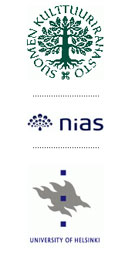 • Third Gendering Asia Network Conference to be held in Helsinki
• Third Gendering Asia Network Conference to be held in Helsinki
The 3rd Gendering Asia Network Conference will be held in Helsinki, Finland 28–30 May 2009. The theme for the 2009 Gendering Asia Network Conference is ”Gender, Mobility and Citizenship”. The conference seeks to address issues in contemporary Asia arising
from the increase in gendered mobility in border crossings in such
locations as national/transnational, public/private, and the
categories of ethnicity, class and sexuality. More specifically, some
of the manifestations of this mobility include the
trans-nationalization of care, nursing and household work, women’s
growing participation in the military, various movements conducted by
ethnic minorities and former colonial subjects, and the emergence of
trans-sexual bodies and identities. It is the third conference in a series after the successful
meetings in Sweden (2005) and in Iceland (2007).
In conjunction with the conference, a PhD workshop on gender and
Asia will be held. It is intended to bring together and assist
doctoral students at various stages of their dissertation project on a
topic related to gender and Asia. Doctoral students are asked to send a statement that discusses their
dissertation projects by February 28, 2009. Both the conference and the Ph.D. workshop are organized in
collaboration with the Gendering Asia Network and the Nordic Institute
of Asian Studies. Full information about the conference and the PhD workshop.
 • Second edition of the Bergen Summer Research
School
• Second edition of the Bergen Summer Research
School
The second edition of the Bergen Summer Research
School will be held 22 June – 3 July 2009 in Bergen, Norway. It will be dedicated to the theme of Climate, Environment and Energy. The 2009 theme will intersect with the other key topics of the Bergen Summer Research School (poverty, health, norms, values, language and culture) and will be structured around the following concepts: – Mitigation; –
Adaptation; –
Responsibilities: and – Opportunities. Bergen Summer Research
School is
an initiative of the Bergen academic
milieu’s (University of Bergen, Chr. Michelsen Institute, etc) commitment to produce and
disseminate research-based education to
address some key global challenges
posed by an increasingly knowledge-
based, complex, multicultural, religiously diverse, and unequal global society. The research school aims to promote dialogue across academic disciplines, the private sector, government, civil society organizations and to raise awareness and incentives for all those sectors. The north–south dimension will be always kept as a fundamental issue. BSRS 2009 will accept a maximum of 100 candidates.
Deadline for applications is 15 February 2009. More information.
• Canberra workshop on Transmission of academic values in
Asian Studies
A Workshop on ”Transmission of academic values in
Asian Studies” will be held in Canberra, Australia 25–26 June 2009. The workshop, organised by the he Australia-Netherlands Research Collaboration (ANRC), proposes to examine issues surrounding the transmission of scholarly values in Asian Studies. It will draw upon the views of scholars from a range of life-stages in order to seek a clearer picture of the values that scholars see as important to preserve and of the techniques for achieving transmission between the generations. A feature of the workshop will be attention to differences in values and practice between Australia and other countries. Asian Studies researchers from every career
stage (postgraduate to post-retirement) are invited
to submit proposals for a brief presentation on one or more themes of the workshop.
Deadline for submitting papers is 27 February 2009. More information.
• 8th International Vedanta Congress to be held in Dartmouth
The 8th International Vedanta Congress will be held at the Center for Indic Studies, University of Massachusetts-Dartmouth, Dartmouth MA,USA 16–19 July 2009. Prof. S.S. Rama Rao Pappu is the director of this event, and Prof. Bal Ram Singh is co-director. The broad themes to be covered are: Vedic Studies, Vedantic Studies, Philosophical Studies, and Veda and Vedanta in Sanskrit medium. More information.
• First announcement for 2009 World Water Week in Stockholm
 The 2009 World Water Week in Stockholm will be held 16–22 August 2009. The theme for 2009 is ”Water – Responding to Global Change: Accessing Water for the Common Good with Special Focus on Transboundary Waters”. The World Water Week, organised by the Stockholm International Water Institute (SIWI) is
the leading annual global meeting place for capacity-building,
partnership-building and follow-up on the implementation of international
processes and programmes in water and development, with large relevance
to South Asia. It is filled with plenary sessions, seminars, workshops,
side events and special activities. The Scientific Programme Committee (SPC) planning for the conference is chaired by Prof. Jan Lundqvist, Dept. of Water and Environmental Studies, Linköping University. Deadline for abstract
submittal is February 1, 2008. Venue: Stockholm
International Fairs and Congress Center (Stockholmsmässan) in Älvsjö, 9 km south of central Stockholm. Download the First Announcement and learn more about the 2009 World Water Week.
The 2009 World Water Week in Stockholm will be held 16–22 August 2009. The theme for 2009 is ”Water – Responding to Global Change: Accessing Water for the Common Good with Special Focus on Transboundary Waters”. The World Water Week, organised by the Stockholm International Water Institute (SIWI) is
the leading annual global meeting place for capacity-building,
partnership-building and follow-up on the implementation of international
processes and programmes in water and development, with large relevance
to South Asia. It is filled with plenary sessions, seminars, workshops,
side events and special activities. The Scientific Programme Committee (SPC) planning for the conference is chaired by Prof. Jan Lundqvist, Dept. of Water and Environmental Studies, Linköping University. Deadline for abstract
submittal is February 1, 2008. Venue: Stockholm
International Fairs and Congress Center (Stockholmsmässan) in Älvsjö, 9 km south of central Stockholm. Download the First Announcement and learn more about the 2009 World Water Week.
• 38th Annual Madison Conference on South Asia
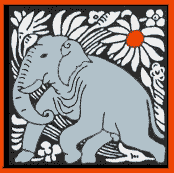 The 38th Annual Madison Conference on South Asia will be held on October 22–25, 2009. The conference, The Conference that is sponsored by the Center for South Asia at the University of Wisconsin-Madison, attracts over 500 scholars and specialists on South Asia and is a great venue for intellectual, professional, and social exchange. Panels, roundtables, and individual papers on all topics pertaining to South Asian studies are welcome. Registration and proposal submission forms (single papers, panels, roundtables, preconferences) are available on line. Registration as a non-presenting participant at the Conference is open to the general public. The conference features 75 or more academic panels and roundtables, as well as association meetings and special events ranging from performances to film screenings. Venue: Madison Concourse Hotel, 1 West Dayton St., Madison, Wisconsin, USA. More information.
The 38th Annual Madison Conference on South Asia will be held on October 22–25, 2009. The conference, The Conference that is sponsored by the Center for South Asia at the University of Wisconsin-Madison, attracts over 500 scholars and specialists on South Asia and is a great venue for intellectual, professional, and social exchange. Panels, roundtables, and individual papers on all topics pertaining to South Asian studies are welcome. Registration and proposal submission forms (single papers, panels, roundtables, preconferences) are available on line. Registration as a non-presenting participant at the Conference is open to the general public. The conference features 75 or more academic panels and roundtables, as well as association meetings and special events ranging from performances to film screenings. Venue: Madison Concourse Hotel, 1 West Dayton St., Madison, Wisconsin, USA. More information.
• Other conferences connected to South Asian
studies arranged all over the World
See SASNET’s page, http://www.sasnet.lu.se/conferences.html#conf
Important lectures and seminars in Scandinavia
• Tone Sissener lecture marks the start for Bergen South Asia Forum
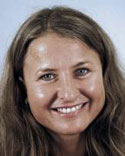 Dr. Tone K. Sissener, Chr. Michelsen Institute (CMI) will lecture on ”Corporate capitalism meets democracy:
an anthropology of the Indian democracy” in Bergen, Norway on Thursday 15 January 2008, 12.00–13.00. Please contact Tone Sissener for a copy of the research proposal that her lecture is based upon. The lunch seminar also marks the inaguration of the new Bergen South Asia Forum, an association of scholars working on South Asian studies in Bergen. The number of such has become quite impressive, and in order to promote scholarly exchange across academic disciplines and department locations, the Bergen South Asia Forum is established. The forum will meet approximately once a month to discuss ongoing work related to South Asia within the social sciences or humanities and get better acquainted with each other's research. Venue: Høyden,
Fosswinckelsgt 18, Bergen. More information.
Dr. Tone K. Sissener, Chr. Michelsen Institute (CMI) will lecture on ”Corporate capitalism meets democracy:
an anthropology of the Indian democracy” in Bergen, Norway on Thursday 15 January 2008, 12.00–13.00. Please contact Tone Sissener for a copy of the research proposal that her lecture is based upon. The lunch seminar also marks the inaguration of the new Bergen South Asia Forum, an association of scholars working on South Asian studies in Bergen. The number of such has become quite impressive, and in order to promote scholarly exchange across academic disciplines and department locations, the Bergen South Asia Forum is established. The forum will meet approximately once a month to discuss ongoing work related to South Asia within the social sciences or humanities and get better acquainted with each other's research. Venue: Høyden,
Fosswinckelsgt 18, Bergen. More information.
• Series of lectures by Uma Lele at Lund University
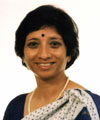 Dr. Uma Lele, Indian/American development economist with a PhD in Agricultural Economics from Cornell University, Ithaca, New
York, holds a number of open guest lectures at Lund University during the period 2–6 February 2009. The lectures are organised by LUMID, Lund University’s international Master’s Programme
in Applied International Development and Management, and held in conjunction with a LUMID course on Rural Development. During her 5-day stay Dr. Lele will lecture on the following topics:
Dr. Uma Lele, Indian/American development economist with a PhD in Agricultural Economics from Cornell University, Ithaca, New
York, holds a number of open guest lectures at Lund University during the period 2–6 February 2009. The lectures are organised by LUMID, Lund University’s international Master’s Programme
in Applied International Development and Management, and held in conjunction with a LUMID course on Rural Development. During her 5-day stay Dr. Lele will lecture on the following topics:
– Monday 2 February, 10.15–12.00: ”India’s Rural Development”.
– Tuesday 3 February, 13.15–15.00: ”Rural Development in Africa”.
– Wednesday 4 February, 10.15–12.00:
”Review of the World Bank Policies and Programs on Forestry and Avoided Deforestation in the Context of Climate Change”.
– Friday 6 February, 13.15–15.00:
”Global Public Goods as they Affect and are Affected by Rural Development”.
Venue for all lectures: Room 111, Geocentrum I, Sölvegatan 10, Lund. All of the lectures are open to the public and there is no entry fee. More information about Dr. Uma Lele.
• Ahmed Rashid lectures in Oslo
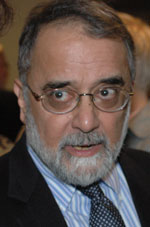 The Pakistani journalist and writer Ahmed Rashid will hold two lectures in Oslo on Tuesday 3 February 2009. First, he will participate in a seminar organised by the Dept. for Security and Conflict management at the Norwegian Institute of International Affairs (NUPI), 9.30–10.30. The morning seminar is titled ”What next for Pakistan? Domestic and regional challenges”. Venue: NUPI, C.J. Hambros plass 2 D, Oslo. More information.
The Pakistani journalist and writer Ahmed Rashid will hold two lectures in Oslo on Tuesday 3 February 2009. First, he will participate in a seminar organised by the Dept. for Security and Conflict management at the Norwegian Institute of International Affairs (NUPI), 9.30–10.30. The morning seminar is titled ”What next for Pakistan? Domestic and regional challenges”. Venue: NUPI, C.J. Hambros plass 2 D, Oslo. More information.
Mr. Ahmed Rashid then proceeds for a public seminar at the University of Oslo at 14.00.
He has been invited by the Department of Political Science/Faculty of Social Sciences,and the theme for the lecture will be ”Afghanistan and Pakistan: the failure of Nation building?”. Venue. Room 847, Eilert Sundts hus (SV-bygget), Blindern, Oslo.
• Copenhagen lecture series on teachings of Allama Iqbal
Iqbal Academy Scandinavia, based in Copenhagen, invites to a series of bi-monthly
study group meetings on Allama Iqbal, his life, work and ideas, during the Spring 2009. The first lecture will be given by the IAS founder, Mr. G. Sabir, on Tuesday 3 February 2009, 17.30–21.00. He will talk about ”Do you really know the true teachings of Allama Iqbal?”. The purpose of the study group is to establish a serious but informal setting for the exploration, discussion and understanding of
Iqbal’s philosophy. The aim is to link Allama Iqbal to actual issues in our everyday life, and open up for reflection on how we can use his teachings to understand and develop ourselves and our lives today.
All are welcome.
Venue: Verdenskulturcenteret, room 102,
Nørre Allé 7, Copenhagen. More information.
Business and Politics
• Information about South Asia related business and politics in Sweden
See SASNET's page, http://www.sasnet.lu.se/polbuss.html
South Asia related culture in Scandinavia
 •
South Asian films at 32nd Göteborg International Film Festival
•
South Asian films at 32nd Göteborg International Film Festival
The 32nd Göteborg International Film Festival, starting on Friday 23 January
2009 (and lasting tilll Monday 2 February), will show at least four films connected
to South Asia. Two of them are made by Indian directors, Farah Khan’s hindi film ”Om Shanti Om”; and Bipin Nadkarni’s marathi film ”A Home in the Sky”. A new sinhalese film from Sri Lanka will also be screened, ”Machan” directed by Uberto Pasolino. Finally a film made in Mumbai but a US/British production, will appear, ”Slumdog Millionaire” directed by Danny Boyle (photo to the right). More
information on the 2009 Göteborg International Film Festival.
• Mumbai Chamber Music Festival moved to Stockholm
The terror attacks in Mumbai led to the cancellation of the annual Sangat Chamber Music Festival, but the three concerts still passed, in Sweden. Alan Gilbert, the music director-in-waiting of the New York Philharmonic, arranged to have the festival moved to Stockholm, where he lives because of his stint as music director of the Royal Stockholm Philharmonic Orchestra. Mr. Gilbert had planned to attend the festival this December, because his wife, the cellist Kajsa William-Olsson, was a performer. Sponsors, including the Stockholm Philharmonic’s concert hall, stepped forward to pay for travel and accommodations for the musicians, who were donating their fees. The yearly festival is run by the Mehli Mehta Foundation, a major promoter of classical music in Mumbai. One of Mehli Mehta’s sons is Zubin Mehta, the conductor, and another is Zarin Mehta, the president of the New York Philharmonic. The concerts took place at Konserthuset in Stockholm on 15, 17 and 18 December 2008. More information.
• More information about South Asia related culture
in Sweden and Scandinavia
See SASNET’s page, http://www.sasnet.lu.se/culture.html
New and updated items on SASNET web site
• Swedish departments where research on
South Asia is going on:
Constantly added to the list of research environments at Swedish
universities, presented by SASNET. The full list now includes 234 departments,
with detailed descriptions of the South Asia related research and education
taking place! Go to http://www.sasnet.lu.se/environment.html
ƒ Physical Chemistry 1, Department of Chemistry, Faculty of Engineering, Lund University
ƒ Section of Medical Genetics and Genomics; Department of Genetics and Pathology, Uppsala University
• Useful travelling information
Look at http://www.sasnet.lu.se/travelling.html.
Updated travel advises from the The British Foreign & Commonwealth
Office about safety aspects on travelling to the countries of
South Asia.
Best regards,
Lars Eklund
deputy director/webmaster
SASNET/Swedish South Asian Studies Network
SASNET is a national network
for research, education, and information about South Asia, based at Lund
University. The aim is to encourage and promote an open and dynamic networking
process, in which Swedish researchers co-operate with researchers in South
Asia and globally.
The network is open to all sciences. Priority is given to co-operation
between disciplines and across faculties, as well as institutions in the
Nordic countries and in South Asia. The basic idea is that South Asian
studies will be most fruitfully pursued in co-operation between researchers,
working in different institutions with a solid base in their mother disciplines.
The network is financed by Sida (Swedish
International Development Cooperation Agency) and by Lund
University.
Postal address: SASNET – Swedish South Asian Studies Network,
Scheelevägen 15 D, SE-223 70 Lund, Sweden
Visiting address: Ideon Research Park, House Alpha 1 (first floor,
room no. 2040), in the premises of the Centre for East and South
East Asian Studies at Lund University (ACE).
Phone: + 46 46 222 73 40
Fax: + 46 46 222 30 41
E-mail: sasnet@sasnet.lu.se
Web site:
http://www.sasnet.lu.se
SASNET - Swedish South Asian Studies Network/Lund
University
Address: Scheelevägen 15 D, SE-223 70 Lund, Sweden
Phone: +46 46 222 73 40
Webmaster: Lars Eklund
Last updated
2010-06-24